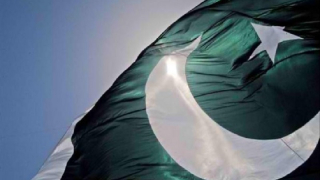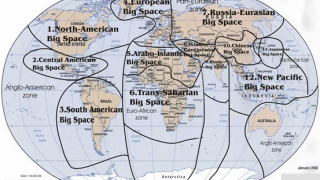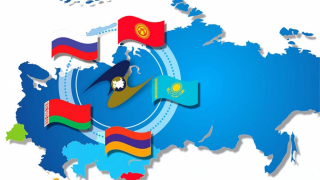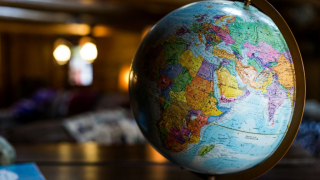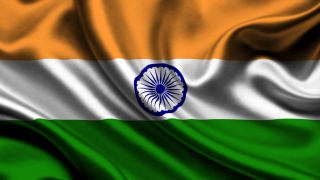Globalization, the Problem of Polarity in IR, and the Uneven Development of the World
27.02.2014
Globalization is a process of the interaction of various parts of the world with one another. It can be argued that it has been in effect ever since Europe and Asia first interacted, be it through Genghis Khan or Marco Polo, although its genesis is still debated among scholars today. Regardless, such global interaction, in varying degrees, consistently has demonstrated that it carries with it certain economic, social, and political processes.
Today’s globalization that rose from the ashes of the Cold War was influenced by the capitalist ‘victory’ over the socialist bloc. Should communism have prevailed, globalization likely would have taken on different characteristics. As an economic process, globalization is worldwide capitalism that involves international finance, off-shore production facilities and outsourcing, and an international division of labor. Socially, there has been a marked promotion of Western values, and certain social processes/movements have been promoted through the use of globally active NGOs. As for the political sphere, Liberal Democracy, at least nominally, has spread throughout previously non-Liberal Democratic areas.
Globalization began its rapid expansion and infusion into most matters of everyday life after the Cold War. Thus, if the Cold War was still in effect, globalization as it is understood today would have continued to be limited. The communist and capitalist worlds may have continued to integrate within their own blocs, but they likely would not have broken the barrier of the Berlin Wall and came together into a semi-unified global system. If anything, there remains the possibility that the two blocs may have cooperated in the countries of the Non-Aligned Movement. Thus, bipolarity can be said to have impeded modern globalization.
The relative unipolarity of the US (capitalism) in the 1990s allowed globalization to surge throughout the world. The reasons for this are many, but to list off a few, they would be as follows:
* the West/NATO’s military superiority and pressuring techniques against defiant states
* the expansion of Liberal Democracy and the liberal economic system
* the idea that global divisions are a thing of the past (Fukuyama’s ‘The End of History’ thesis)
The end result of globalization’s implementation in most parts of the world was that nearly every country had some type of globalized interaction and system of networks/contacts with which to further embed itself into this multifaceted process. Seeing as how the ‘world was coming together’ during this time, those countries that refused to economically integrate into the globalized system for whatever reasons (e.g. North Korea, Myanmar before 2011, Zimbabwe, etc.) remained isolated and more impoverished than their peers.
It is not to say that globally integrated countries are guaranteed wealth and prosperity, as the uneven development brought about by globalization has created acute social and economic problems for peripheral countries. So pronounced has this divide become that the concept of ‘The Global South’ has appeared, in which it is understood as a given that countries south of the equator (the global periphery) are more than likely to be poorer than those north of it. One could state that this is an inherent result of the global capitalist and financial system, and that such uneven developmental patterns are characteristic of the aforementioned processes as a whole and completely ‘natural’ for this type of economic system. As it stands, there is no universally agreed upon method for how to remedy these developmental discrepancies.
Multipolarity’s influence on globalization is still to be seen, and it is too early to definitively state exactly what it will be. One can, however, conjecture as to what effect continued multipolarity will have on the existing globalized system. Such questions surrounding multipolarity’s impact on globalization are as follows:
* Will it usher in regionalization, or will it strengthen and solidify the existing bonds that connect the world’s economies?
* How does multipolarity influence sub-system formation, and can sub-system formation lead to economic regionalism (globalization on a regional scale)
* Will sub-system formation and/or regionalism work as a ‘bloc’ in an economically globalized world?
* In the sub-system/regionalism scenario, would the core take on the role of being the ‘exploitative’ economic center over the regional periphery (e.g. Brazil replacing the US’s role in South America)?
* What is the effect of multipolarity on globalization’s social and political processes? Is it possible for emerging powers to present different economic, social, and/or political models than the liberal ones, which could one day rival, if not surpass, those that are currently in existence?
As the world moves ever closer towards multipolarity, it is important for analysts to forecast scenarios and identify emerging trends that will affect important worldwide processes such as globalization. Multipolarity offers the long-term possibility of forever altering the identity of globalization, and those states and organizations which are not preparing for this will be just as left behind the cusp of upcoming developments as Zimbabwe was for globalization’s advent.




